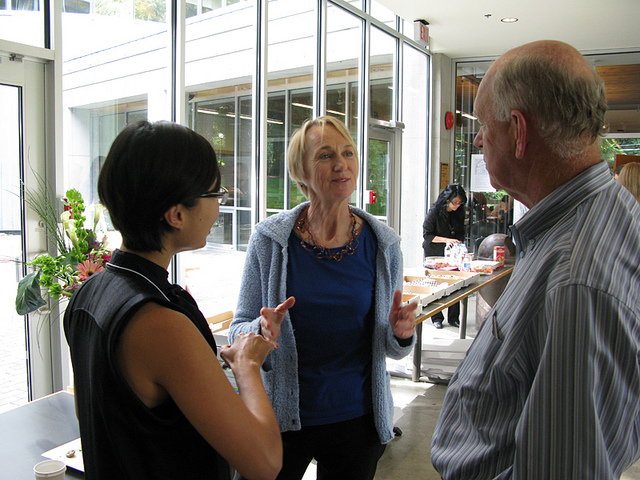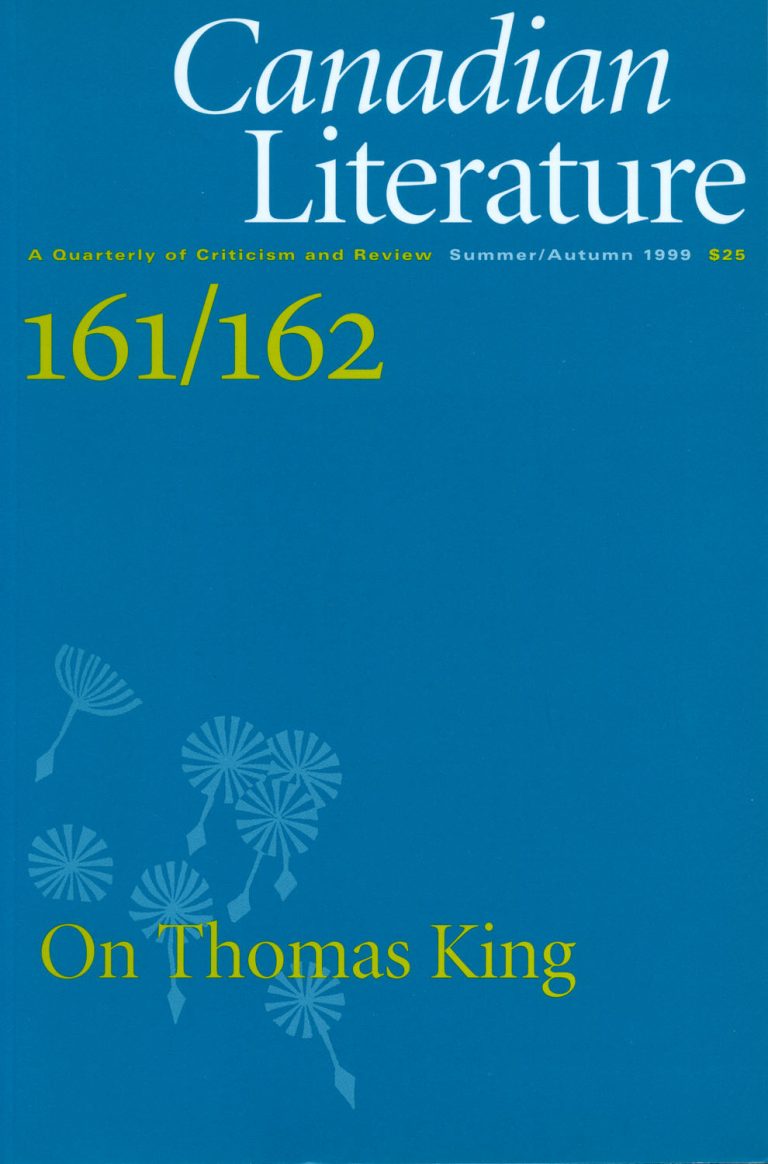Sarah Banting
You have likely already done the kind of work that professional scholars in Canadian literature do: you have analyzed literary and cultural texts, you have written essays that present arguments about those texts, and you have perhaps read articles by other scholars. As such, you have likely already learned a great deal about what topics and questions interest scholars in Canadian literature studies. When your instructors guide class discussion toward particular topics, or set assignment questions that encourage you to think about particular issues, they are implicitly teaching you what is of current interest in this field. As they guide your reading and thinking, they are inviting you to join the scholarly community in its ongoing conversation about pressing topics in Canadian literature studies.
This chapter similarly invites you to further understand and participate in this scholarly community by highlighting some of the most frequently recurring and characteristic motivations that inspire professional scholars to make their arguments in this field. It explores how these motivations shape the development of articles in the field. And it will invite you to consider adopting these motivations in your own essays, or to see how you may have already started adopting them—perhaps even without realizing it.
Insights from Rhetoric and Genre Studies

From left to right, scholars Lily Cho, Christl Verduyn, and Laurie Ricou in conversation. Canadian Literature.
Research from the field of rhetoric and genre studies provides insight into the characteristic motivations driving Canadian literature scholarship. This research analyzes the argument-strategies literature scholars use in their articles and investigates how these strategies reflect the values, methods, and conventions of the professional community. Research by Jeanne Fahnestock and Marie Secor, for example, or by Laura Wilder or Susan Peck MacDonald, shows that professional scholars tend to approach texts rather differently than people who read and write about literature in other contexts (such as for enjoyment or for a book review on a popular website).
The motivations informing scholarship in the field of literature studies are not idiosyncratic. Although each individual scholar may also have private motivations for writing—just as you have your own private motivations for writing your assignments—the scholarship in the field is shaped by these public and widely shared motivations, which act as persistent conventions. They are one feature of scholarly work that makes other scholars value it and recognize it as research in their field, worth publishing in a scholarly journal or praising in a student essay.
This chapter will introduce you to some of these characteristic motivations and, using specific examples, look explicitly at how they inform and shape scholarly arguments in this field.
Questions to Keep in Mind While Reading
-

Canadian Literature issue 161/162. Canadian Literature.
What motivates the kinds of arguments you develop when you are writing essays for your literature classes? Do you think your instructor is motivated by the same values and sources of curiosity? Have you ever thought your literature instructor was reading too much into it when they talk about a novel or poem? Why do you think they might focus on different topics and issues than you?
- What have you learned already, in your studies so far, about the implicit values and motivations of Canadian literature studies? How did you learn this?
- Why do you think literature scholars might sometimes choose to avoid or challenge the commonly shared motivations for developing arguments in their work?
Works Cited
- Fahnestock, Jeanne, and Marie Secor. “The Rhetoric of Literary Criticism.” Textual Dynamics of the Professions: Historical and Contemporary Studies of Writing in Professional Communities. Ed. Charles Bazerman and James Paradis. Madison: U of Wisconsin P, 1991. 76-96. Print.
- MacDonald, Susan Peck. Professional Academic Writing in the Humanities and Social Sciences. Carbondale: Southern Illinois UP, 1994. Print.
- Wilder, Laura. Rhetorical Strategies and Genre Conventions in Literary Studies: Teaching and Writing in the Disciplines. Carbondale: Southern Illinois UP, 2012. Print.








 ©
©